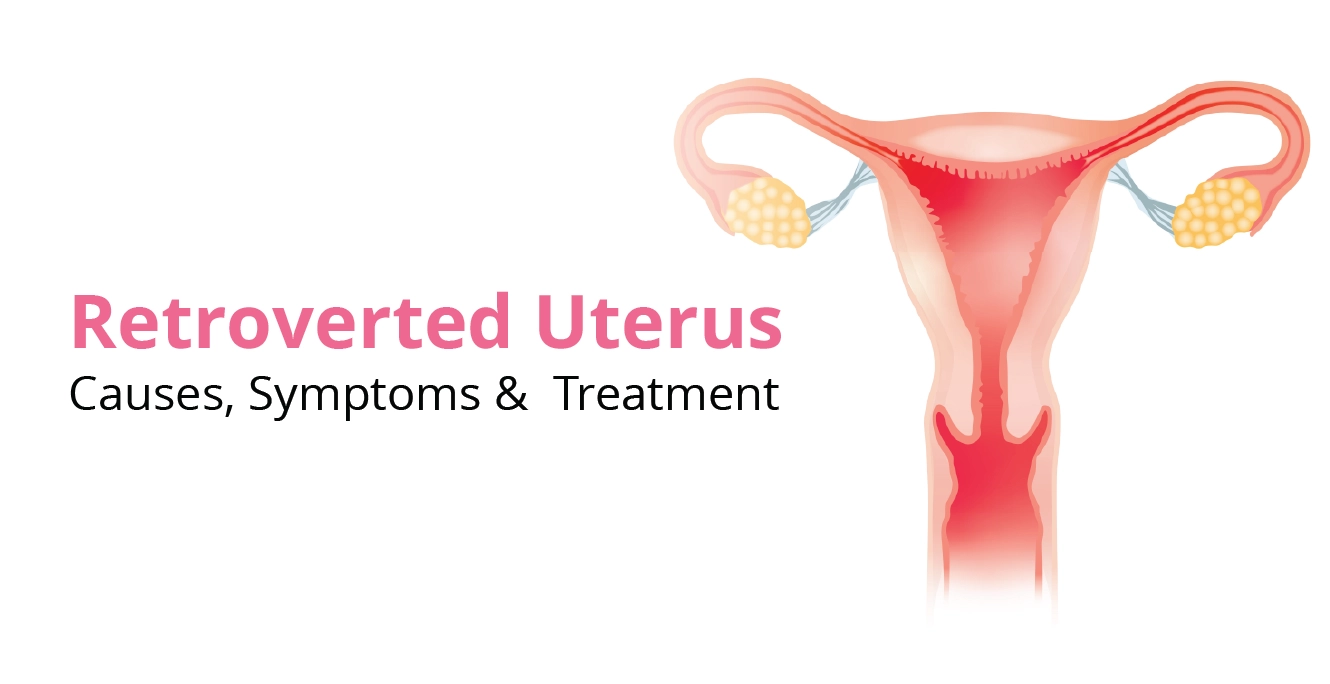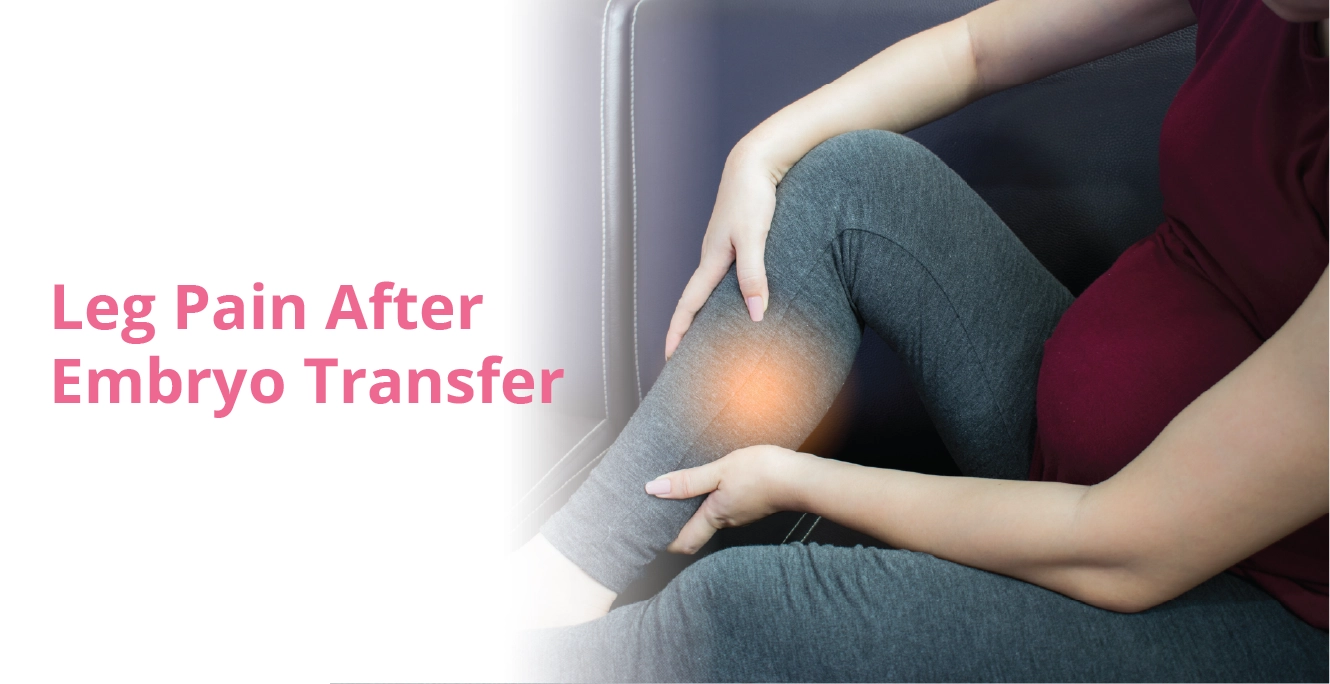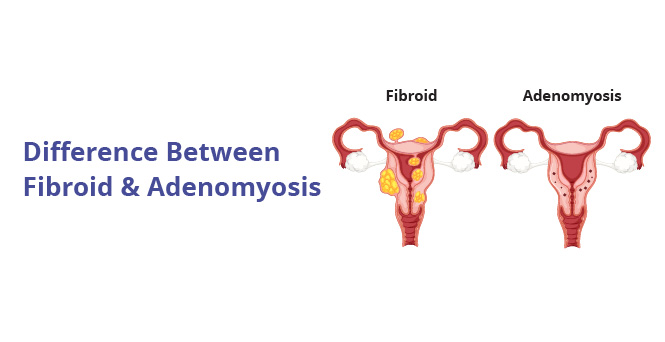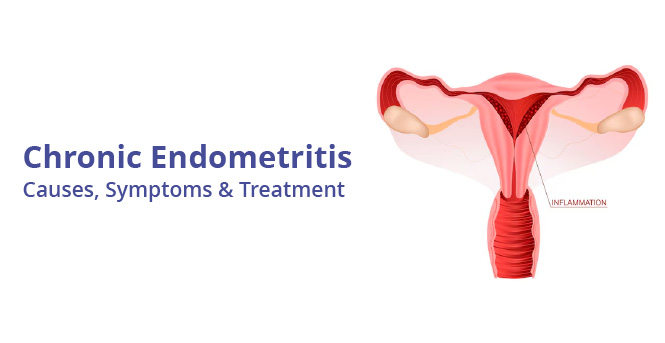
Uterine Polyps: Causes, Symptoms, Diagnosis, and Treatment

Table of Contents
- Who Can Get Uterine Polyps?
- Types of uterine polyps
- Symptoms of Uterine Polyps:
- Causes of Uterine Polyps:
- How uterine polyps (endometrial polyps) can affect fertility
- Complications of Uterine Polyps:
- Risk Factors of Uterine Polyps:
- Diagnosis Methods for Uterine Polyps:
- Treatment Options for Uterine Polyps:
- Recovery after Polyp Removal
- Conclusion
- Frequently Asked Questions (FAQs)
Polyps, in general, are a growth or mass of tissue that develops in the lining of an organ.
Uterine polyps are growths that develop on the inner wall of the uterus and grow into the cavity of the uterus. They are also called endometrial polyps because they are caused by an overgrowth of cells in the uterus lining (endometrium).
Uterine polyps are usually not cancerous. However, some may turn out to be cancerous. Therefore, proper monitoring is important.
The size of uterine polyps varies from small to large. They grow from the uterus wall and are attached to it by a stalk or a base.
Who Can Get Uterine Polyps?
Uterine polyps can develop in women of all ages, but they are more common in women over 40 and those nearing or going through menopause. However, they can also occur in younger women and, in rare cases, even in adolescents.
Types of uterine polyps
Uterine polyps can come in different sizes and shapes:
| Type of Polyp | Description |
| Sessile | Flat base, attached directly to the uterine wall |
| Pedunculated | Attached by a thin stalk that connects them to the uterine lining. |
Symptoms of Uterine Polyps:
Uterine polyps do not always result in symptoms. Some women may experience mild symptoms like light bleeding and spotting. Others may experience more marked symptoms.
If you experience uterine polyps symptoms, it is best to get it checked by a gynaecologist or OB/GYN. They will help you understand whether it is serious or not. This is also important because it enables you to find out whether the polyp is cancerous or not.
The symptoms of uterine polyps include the following:
- Erratic/irregular menstrual cycle– unpredictable timing of periods and varying length of period
- Bleeding or spotting between periods
- Very heavy bleeding during periods
- Lighter bleeding than normal during periods
- Bleeding even after menopause
- Female infertility
Causes of Uterine Polyps:
- Hormonal factors: They appear to play a key role. Uterine polyps are estrogen-sensitive and hence grow in response to circulating estrogen.
- Medications: Certain drugs with high doses of estrogen, such as those used in hormone replacement therapy or treating breast cancer, can increase the risk of uterine polyps.
- Family History: If there is a family history of Lynch syndrome or Cowden syndrome, then also the chances of uterine polyps may increase.
How uterine polyps (endometrial polyps) can affect fertility
Uterine polyps can make it harder to get pregnant. They can:
- Block the opening of the fallopian tubes, making it tough for an egg to travel into the uterus
- Prevent a fertilized egg from attaching to the uterine lining
- Increase the risk of miscarriage
The good news is that removing polyps can improve your chances of getting pregnant, especially if you’ve been struggling with infertility.
Complications of Uterine Polyps:
Uterine polyps may lead to certain complications. These include the following:
- Infertility—polyps may affect fertility and make it difficult for you to become pregnant.
- Cancer—sometimes, uterine polyps can be cancerous or turn out to be cancerous.
However, with early intervention and regular monitoring, the complications can be avoided.
Risk Factors of Uterine Polyps:
Though the main cause of uterine polyps is identified as hormonal imbalance, there are some risk factors that can lead to the formation of uterine polyps in the uterus:
- Women during perimenopause, menopause, and post-menopause
- Being overweight
- A side effect of any hormone therapy
- PCOS may increase the risk of developing uterine polyps due to chronic estrogen exposure
- A side effect of a drug or any other medicine used to treat other conditions (For example, women taking tamoxifen for breast cancer and those with certain genetic conditions, like Lynch syndrome, may also be at risk for uterine polyps)
Diagnosis Methods for Uterine Polyps:
When diagnosing uterine polyps, your gynaecologist or OB/GYN will ask you about your menstrual cycle, the duration of your periods, and how often you get them. They will also ask about the kind of bleeding you experience.
Make sure to mention any relevant symptoms, such as spotting between periods, unusually light or heavy flow, or if you are facing difficulty in getting pregnant. The gynaecologist or OB/GYN will then perform a pelvic exam and will perform or suggest certain diagnostic tests.
Uterine polyps are diagnosed using different diagnostic techniques. These include the following:
Transvaginal Ultrasound –
Your gynaecologist or OB/GYN may use an ultrasound test to examine your uterus and its interior. This helps with identifying the presence of polyps.
Hysteroscopy –
In this test, a telescopic instrument called a hysteroscope is inserted into your uterus through your vagina. This allows the gynaecologist to examine your uterus.
Endometrial Biopsy –
In this test, a plastic instrument is inserted inside the uterus to collect tissue from the endometrium. This sample is then tested to check for any abnormalities that could indicate the presence of polyps.
Curettage –
- In this procedure, your gynaecologist or OB/GYN will use a slim, long metal instrument (a curette) to collect tissue from the walls of the uterus.
- This procedure is not just used to check for polyps but is also used to remove them.
- It has a loop at the end that is used to scrape the polyps off the uterus walls.
- The tissue or the polyps removed can then be tested to check if they are cancerous.
Treatment Options for Uterine Polyps:
- A uterine polyp does not always require treatment.
- Your gynaecologist may suggest watchful waiting if it is a small polyp and you are not facing any major symptoms. This involves monitoring your symptoms and having regular check-ups to monitor the polyp.
- Small polyps can resolve by themselves and may not require treatment unless they are cancerous.
- However, if the polyp is large or causing significant symptoms, you may have to get it treated.
Uterine polyp treatment includes the following methods:
- Medication – Hormonal medications can provide temporary relief for the symptoms of a polyp. These would include hormones like progestins. However, the symptoms will usually resume once the medication is stopped.
- Hysteroscopy – In this treatment, the gynaecologist will use a surgical instrument through the hysteroscope to remove polyps.
- Curettage – Using the hysteroscope to examine the uterus, the gynaecologist will also use a curette to scrape off polyps.
- Further Surgery – Further surgery may be required if the polyp cannot be removed using the above methods.
In case the polyps are cancerous, a hysterectomy may be required. In this procedure, the uterus is removed by surgery. It can then be replaced with a healthy uterus.
However, this is major surgery and will only be suggested if other methods cannot remove the polyp or if it is cancerous and removal of the uterus is required.
Recovery after Polyp Removal
Most women feel better pretty quickly after having polyps removed. You can expect some light bleeding or cramping for a few days, but this usually goes away on its own.
To help prevent polyps from coming back, your doctor may recommend:
- Losing weight if you’re overweight
- Adjusting any medications that might be contributing to polyp growth
- Having regular check-ups to monitor for new polyps
Conclusion
Uterine polyps are not always a cause for concern. However, if you are experiencing significant symptoms, you should visit a gynaecologist or OB/GYN to check for polyps. They can affect your fertility and make it difficult for you to become pregnant.
If you are experiencing difficulty in becoming pregnant or if you are concerned about your fertility, you can visit a fertility specialist. A fertility specialist can suggest appropriate tests to understand what is affecting your fertility. They can also suggest the most suitable course of treatment for you and your partner. These include intrauterine insemination (IUI) and in vitro fertilisation (IVF).
Frequently Asked Questions (FAQs)
Should I Be Worried if I Have a Polyp in My Uterus?
No, a polyp is not necessarily a cause for concern. Most polyps are not cancerous. Small polyps usually do not cause major symptoms and may resolve independently. However, if you experience major symptoms such as excessive bleeding, very erratic periods, or difficulty becoming pregnant, it is best to get it checked. It will need to be treated as soon as possible if it is cancerous. Even if a polyp is not cancerous, it may still affect your ability to become pregnant, in which case treatment is advised.
What Causes Polyps in the Endometrium?
What exactly causes polyps to develop in the endometrium is not certain. However, hormone levels and imbalances may contribute to the development of polyps. Estrogen levels may be a contributing factor. Estrogen is the hormone that causes the uterus to thicken every month.
Are Endometrial Polyps Painful?
Endometrial polyps are usually not painful. However, if they grow in size, they may become uncomfortable and painful to live with. They may also cause very heavy periods, which may lead to more severe pelvic or abdominal pain during periods.
What is Worse: Fibroids or Polyps?
Fibroids can be worse in terms of pain and discomfort. Fibroids may grow to larger sizes and can cause more pain, discomfort, and bloating of the abdomen. Polyps do not grow to as large sizes. However, polyps can carry the risk of cancer. Fibroids tend not to be cancerous, and a cancerous fibroid is rare.
Our Fertility Specialists
Related Blogs
To know more
Birla Fertility & IVF aims at transforming the future of fertility globally, through outstanding clinical outcomes, research, innovation and compassionate care.
Had an IVF Failure?
Talk to our fertility experts

 Our Centers
Our Centers















